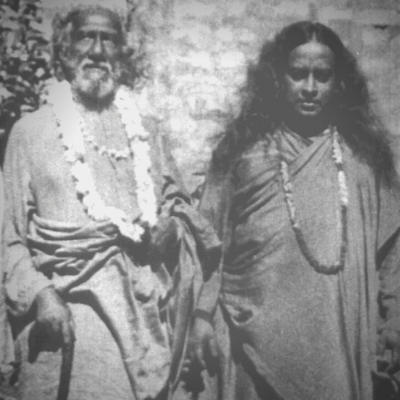The Power of Memory
“Many have been My births, O Arjuna, and many also yours. I remember all of Mine, though you remember yours not.” These words from Sri Krishna to his disciple in the Bhagavad Gita show a divine memory of the soul’s eternal nature.
Memory, in its highest expression, is much more than remembering what is on a grocery list. It is the soul’s ability to transcend the limitations of time.
Paramhansa Yogananda spoke of the “easy resurrection of memory” through which he brought to mind past experiences with his guru, Sri Yukteswar. With a trained and heightened sense of memory, we can meld past, present, and future into the eternal now. Patanjali, the ancient authority on yoga, described spiritual awakening as smriti, which means “memory.”
The yogic teachings describe three different levels of our awareness. The subconscious mind is the repository of all of our past experiences, impressions, and thoughts. It’s the archives for our memories, not only of this life, but of all of our lives.
The conscious mind is the operating system that responds to the details and challenges of daily life. It’s how we solve problems, make decisions, and plan for the future. The conscious mind draws on memories held in the subconscious to inform its decisions, so they work together.
The superconscious mind is our higher, intuitive faculty that allows us to expand our awareness beyond the limitations of the ego. Through it, we can experience our true Self, and ultimately our oneness with God.
From this description, it’s easy to draw the conclusion that it’s a progression—that all we need to do is focus on the superconscious mind and forget about the “lower” levels of awareness. But it isn’t that simple.
Swami Kriyananda said something in this regard that has always intrigued me. Superconsciousness, he wrote, is found at the thin line between the conscious and subconscious minds, rather like the horizon line between sea and sky.
Here we come to the power and importance of memory. The subconscious is much more than a dreamy, unaware state of hidden compulsions. Rather it’s an intrinsic part of our journey to enlightenment, both because it contains useful lessons from the past, and because it’s not limited to dwelling in the present.
Yoganandaji spoke often about how to develop the power of memory, and how to use it properly. “Memory,” he said, “is that faculty of the conscious mind which, through the help of the subconscious mind, can recall any past conscious experience. Always awake, the subconscious mind is buried beneath the conscious mind, working during sleep and constantly memorizing experiences during the state of wakefulness.”
“In order to perform important duties and recall valuable experiences for daily use, one must be able to work with the material recalled to the conscious mind by the power of memory. The subconscious mind can be trained to recall at will all conscious experiences.”
Here are some ways Master gives to develop our memory:
-
Morning and evening, rap the scalp with the knuckles, then massage it with the fingers as taught in the Energization Exercises.
-
Perform every action with keen attention. Attention is the needle that cuts grooves in the memory cells.
-
Every night, remember in detail everything that happened during the past week. Try also to remember in detail the principal events of the month with regard to your life, your city, your country, and the world.
-
Before going to bed and upon awakening, command your subconscious mind to be attentive to all your activities and to store all valuable experiences.

This brings us to the proper use of memory. Yoganandaji said, “Memory was given to us to keep alive only life’s good experiences and lessons. To remember bad experiences and dwell upon them is an abuse of God’s gift to us of memory.” This doesn’t mean that we suppress bad experiences or ignore past mistakes. Rather, we should move on from painful experiences, and concentrate on filling our memory banks with positive, divine recollections.
As Sri Yukteswar said to a new student who doubted his own worthiness to seek God: “Forget the past. The vanished lives of all men are dark with many shames. . . . Everything in future will improve if you are making a spiritual effort now.”
Ultimately, what is the best use of this divine gift of memory? Remembering God. As I write this today, it’s the seventy-first anniversary of Yoganandaji’s mahasamadhi.
To honor our great Guru, take some time at this very moment to remember his impact on your life. When was the first time you saw his photo? When did you first read his Autobiography of a Yogi? What was your first impression of it? If you’re a disciple, when did you realize that he was your God-given guru? Sit in stillness with these memories, and try to feel the timeless nature of your bond with him.
Recently a friend sent us a description of an experience a direct disciple of Master had with him some decades after his mahasamadhi. Yogananda appeared to him holding a white and gold book in letters of light, entitled The Book of My Life. Master held it, and told him to turn the pages and read from the book. As he turned the pages backward and forward, he saw accounts of his previous and future incarnations, in which his guru was always guiding him.
Though, like Arjuna, we may not consciously remember our past lives, the eternal love between guru and disciple is always there, just beneath the surface. The more we’re able to access the stored memories of our Guru’s presence, and hold the thought of him in our conscious mind, the more quickly we will be able to realize our oneness with him.
With the joy of remembering God and Guru,
Nayaswami Devi